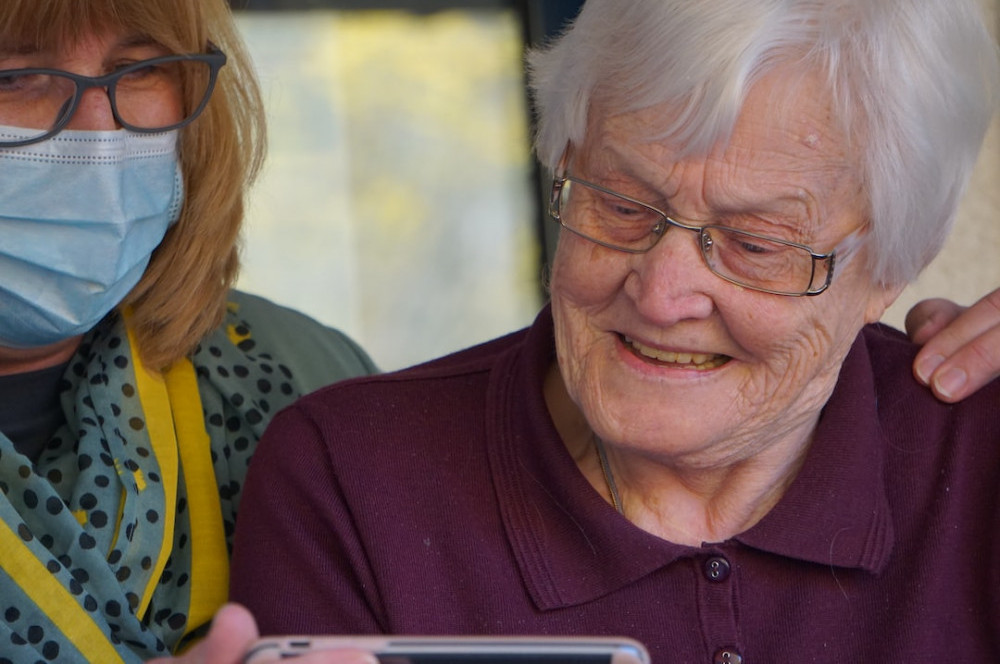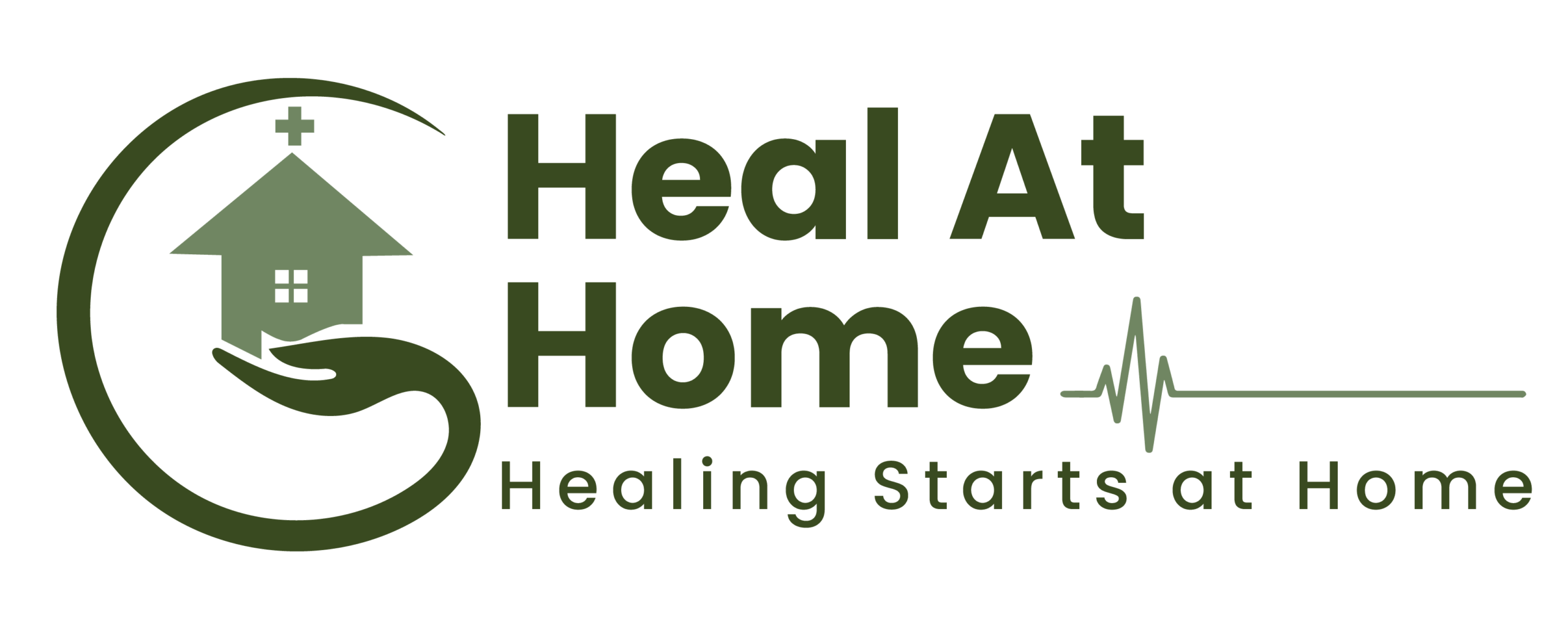1. Healing at home 5 questions: How does the in-home mobile wound care service work, and what benefits does it offer compared to traditional clinic-based care?
In-home mobile wound care services represent a paradigm shift in healthcare delivery, providing patients with a unique and convenient approach to managing their wounds. Unlike traditional clinic-based care where patients have to travel to a medical facility for treatment, in-home mobile wound care brings skilled nursing expertise directly to the patient’s doorstep.
The mechanics of this service are simple yet transformative. Patients who require wound care receive scheduled visits from qualified and experienced nurses who specialize in wound management. These nurses bring all the necessary equipment, dressings, and medical supplies to provide comprehensive care in the comfort of the patient’s own home.
The benefits of in-home mobile wound care are substantial when compared to traditional clinic-based care. Here’s a closer look at what it offers:
- Convenience: The primary advantage is the unparalleled convenience it offers. Patients no longer need to contend with transportation challenges, traffic, or long waiting times at a clinic. The hassle of arranging transportation, especially for elderly or immobile patients, is eliminated.
- Personalized Care: In-home nurses provide one-on-one attention, allowing for a more personalized and tailored approach to wound care. This level of individualized attention can lead to better treatment outcomes and faster healing.
- Reduced Risk of Infections: By receiving care in the familiar and controlled environment of their own home, patients are exposed to fewer external germs.
- Comfort and Familiarity: Healing is often expedited when patients are surrounded by the comfort of their own environment. Being in a familiar setting can contribute to reduced stress and anxiety, which in turn can positively impact the healing process.
- Comprehensive Monitoring: In-home nurses not only provide treatment but also monitor the progress of wounds over time. This continuous assessment helps detect any changes or complications early, allowing for prompt intervention.
- Family Involvement: Family members or caregivers can actively participate in the wound care process, gaining valuable insights from the nurse. This shared knowledge promotes a holistic approach to patient care.
- Cost-Efficiency: In many cases, insurance covers these in-home services.
- Minimized Disruption: In-home care reduces disruption to daily routines, allowing patients to maintain their comfort and independence as they heal.
In essence, the in-home mobile wound care service model brings quality healthcare directly to the patient’s door, fostering a more comfortable, efficient, and patient-centered healing journey. It’s a powerful example of how healthcare is adapting to meet the needs of patients while prioritizing their comfort and well-being.
2. How can I schedule an in-home visit from a nurse for my wound care needs?
Scheduling an in-home visit from a nurse for your wound care needs is a straightforward process designed to provide you with the convenience of professional healthcare without leaving the comfort of your own home. Here’s how you can go about arranging an in-home nurse visit to monitor your healing at home:
- Contacting the Healthcare Provider or Service: Begin by reaching out to your healthcare provider, doctor’s office, or the specialized in-home wound care service you’ve been referred to. They can guide you through the process and help you understand the available options. Call 405-492-7229 to schedule an in-home visit.
- Assessment of Your Needs: The healthcare provider will assess your wound care requirements. This assessment may involve understanding the type of wound, its severity, your medical history, and any specific instructions given by your doctor.
- Scheduling the Visit: Once your needs are assessed, you can work with the healthcare provider or the service to schedule the in-home visit. This may involve coordinating with your availability and the availability of the nursing staff.
- Providing Necessary Information: You might be asked to provide information about your location, your contact details, and any specific instructions or preferences you have for the visit. This helps ensure that the nurse arrives prepared and ready to provide the best care.
- Preparing for the Visit: Prior to the visit, ensure that the area where the nurse will be conducting the wound care is clean and comfortable. Make sure you have a clear understanding of the wound care routine you’ve been following and any medications or treatments you’ve been using.
- The Nurse’s Visit: On the scheduled day, the nurse will arrive at your home equipped with the necessary medical supplies, dressings, and tools required for your wound care. They will begin by assessing the wound, evaluating its healing progress, and making any necessary adjustments to the treatment plan.
- Monitoring and Guidance: During the visit, the nurse will not only provide wound care treatment but will also educate you about the healing process and any steps you should take between visits to support your healing at home. They will answer any questions you might have and address any concerns.
- Documentation: The nurse will document the progress of your wound, including measurements, observations, and any changes noted during the visit. This documentation helps in tracking your healing journey and making informed decisions about your care.
- Follow-Up: Depending on the nature of your wound and its healing trajectory, the nurse will schedule any necessary follow-up visits. They will guide you on what to look for, how to care for your wound between visits, and when to seek further medical attention if needed.

Scheduling an in-home visit from a nurse for your wound care needs is a patient-centered approach that emphasizes your comfort and well-being. It ensures that you receive professional healthcare tailored to your unique situation while minimizing disruptions to your daily routine and allowing you to heal in a familiar and supportive environment. Call 405-492-7229 to schedule an in-home visit.
3. What qualifications and training do the nurses providing in-home wound care possess?
Nurses who provide in-home wound care play a crucial role in ensuring that patients receive the necessary medical attention and support for their wounds within the comfort of their own homes. These nurses possess a specialized skill set and training addressing various types of wounds, promote healing, and prevent complications. Here’s an expansion on the qualifications and training these nurses typically possess:
- Education and Licensure: In-home wound care nurses are typically registered nurses (RNs) or Nurse Practitioners (NP), depending on the level of care required for the patient’s wounds.
- Wound Assessment and Management Certification: In-home wound care nurses undergo specialized training and get certified in wound assessment and management. They can identify different types of wounds (e.g., surgical, pressure ulcers, diabetic ulcers), assess their severity, and develop appropriate care plans. They understand wound healing stages, infection prevention, and the importance of keeping wounds clean and protected.
- Dressing Changes: These nurses have hands-on experience in changing wound dressings. They understand different types of wound dressings and their appropriate usage based on the wound type and stage of healing.
- Infection Control: Preventing infection is a critical aspect of wound care. In-home wound care nurses are trained in proper aseptic techniques to minimize the risk of infection during dressing changes and other procedures.
- Patient Education: These nurses are skilled in patient education. They can teach patients and their caregivers about wound care protocols, signs of infection, the importance of proper nutrition for wound healing, and when to seek medical attention.
- Communication and Collaboration: In-home wound care nurses work closely with other healthcare professionals, including physicians, wound care specialists, and physical therapists. Effective communication and collaboration are essential to ensure that the patient’s overall care plan is well-coordinated.
In summary, nurses who provide in-home wound care possess a specialized blend of nursing skills, wound assessment and management expertise, infection control knowledge, patient education capabilities, and the ability to work collaboratively in various home environments. Their goal is to promote wound healing, prevent complications, and enhance the overall quality of life for patients receiving care at home.
4. What steps are taken to coordinate with the patient’s primary care physician or specialists while delivering in-home wound care?
Coordinating with a patient’s primary care physician or specialists while delivering in-home wound care is essential to ensure comprehensive and seamless healthcare. The goal is to provide consistent and well-coordinated treatment that aligns with the patient’s overall care plan. Here’s an expansion on the steps taken to achieve effective coordination:
- Initial Assessment and Communication: When a nurse begins in-home wound care, they start by gathering information about the patient’s medical history, ongoing treatments, and existing care plan. This includes identifying the patient’s primary care physician and any relevant specialists. Open and clear communication is established with the healthcare providers from the outset.
- Sharing Care Plans: The in-home wound care nurse shares the patient’s care plan with the primary care physician and specialists. This plan outlines the wound’s characteristics, treatment regimen, medications, dressing changes, and any other interventions. This documentation provides a comprehensive overview of the patient’s condition and the care being delivered at home.
- Regular Updates: Regular communication updates are provided to the primary care physician and specialists. These updates include details about wound healing progress, any complications or concerns, changes in treatment, and the patient’s response to interventions. This ongoing dialogue ensures that all healthcare providers are informed and can adjust their treatment recommendations as needed.
- Medication Management: In-home nurses ensure that medications related to wound care are administered as prescribed and that there are no conflicts with other medications the patient might be taking. They communicate any medication changes or adverse reactions to the primary care physician for consideration.
- Alerting to Changes: If the patient’s condition experiences significant changes or if complications arise, the in-home nurse promptly alerts the primary care physician and relevant specialists. This enables timely intervention and prevents potential complications from worsening.
- Transitioning of Care: If there comes a point when the in-home wound care is no longer required, the nurse facilitates a smooth transition of care back to the primary care physician or specialist. They provide detailed documentation of the care provided and any ongoing requirements for wound management.
- Documenting Care: Accurate and detailed documentation is crucial in maintaining a clear record of the patient’s wound care journey. This documentation is often shared with the primary care physician and specialists to ensure that everyone is on the same page regarding the patient’s progress and treatment plan.
Effective coordination between in-home wound care nurses and primary care physicians/specialists ensures that the patient receives holistic and comprehensive care. It promotes patient safety, enhances treatment outcomes, and minimizes the risk of miscommunication or gaps in care.
5. How does the in-home mobile wound care service contribute to reducing healthcare costs and preventing hospitalizations?
An in-home mobile wound care service offers several benefits that can contribute to reducing healthcare costs and preventing hospitalizations. By providing specialized wound care directly to patients in their own homes, this service can have a positive impact on both the patient’s well-being and the overall healthcare system. Here’s an expansion on how in-home mobile wound care services achieve these goals:
- Early Intervention and Prevention: In-home mobile wound care services enable early identification and intervention for wounds. By addressing wounds at an early stage, complications can be minimized, and more complex and costly treatments can be avoided. This proactive approach helps prevent the progression of wounds to a point where hospitalization might become necessary.
- Reduced Hospital-Acquired Infections: Hospitals can be breeding grounds for infections. When patients with wounds are treated at home, the risk of acquiring additional infections from the hospital environment is significantly reduced. In-home wound care promotes a controlled and sterile environment, lowering the chances of hospital-acquired infections and subsequent hospitalizations.
- Lower Inpatient Costs: Hospitalizations involve a range of costs, including room charges, medical procedures, and nursing care. In-home mobile wound care services can substantially reduce these costs by delivering care in a more cost-effective setting. Patients can avoid the expenses associated with overnight stays and invasive procedures that might be necessary in a hospital setting.
- Shorter Length of Stay: For patients who require wound care, the length of hospital stays can be extended due to the need for consistent wound monitoring and management. In-home wound care allows patients to receive personalized attention and treatment without the need for prolonged hospital stays, leading to shorter lengths of stay and reduced costs.
- Patient Comfort and Compliance: Patients often prefer receiving care in the familiar and comfortable environment of their own homes. This can improve patient compliance with treatment plans, as they feel more in control and empowered. Improved compliance can lead to better wound healing outcomes and reduced likelihood of complications.
- Preventative Education: In-home mobile wound care nurses provide patients and caregivers with education on wound care techniques, signs of infection, and proper self-care practices. Equipped with this knowledge, patients are more likely to recognize and address issues early, reducing the need for emergency interventions.
- Personalized Care: In-home wound care is tailored to each patient’s unique needs. This individualized approach often leads to better outcomes compared to generalized care provided in a hospital setting.
- Improved Quality of Life: Patients who receive wound care at home experience less disruption to their daily routines and activities. This can have a positive impact on their mental and emotional well-being, leading to faster healing and reduced stress on the body.
Embracing in-home mobile wound care services presents a transformative shift in healthcare delivery. The integration of expert care, convenience, and coordination ensures a holistic healing experience, all from the sanctuary of your own home. This patient-centered approach stands at the forefront of modern healthcare, promising a brighter, more comfortable future for all.

